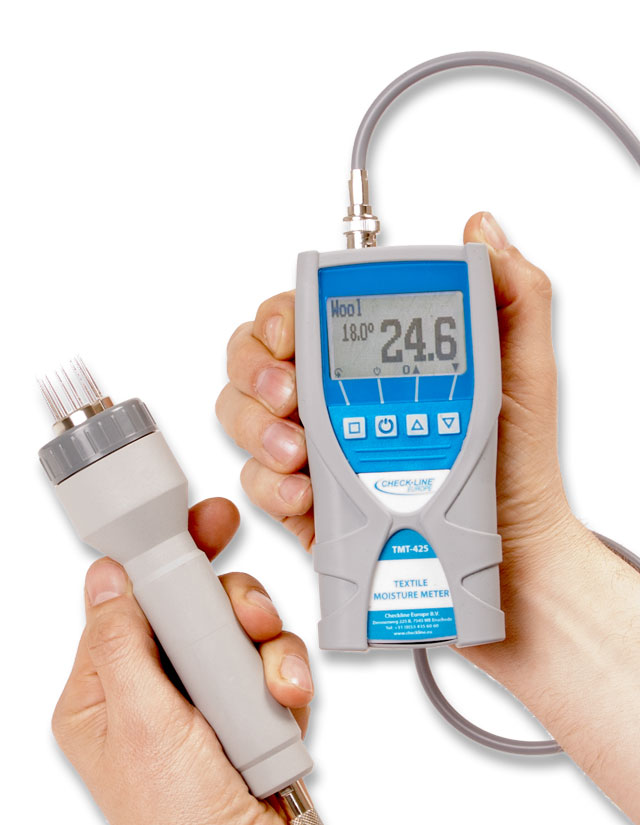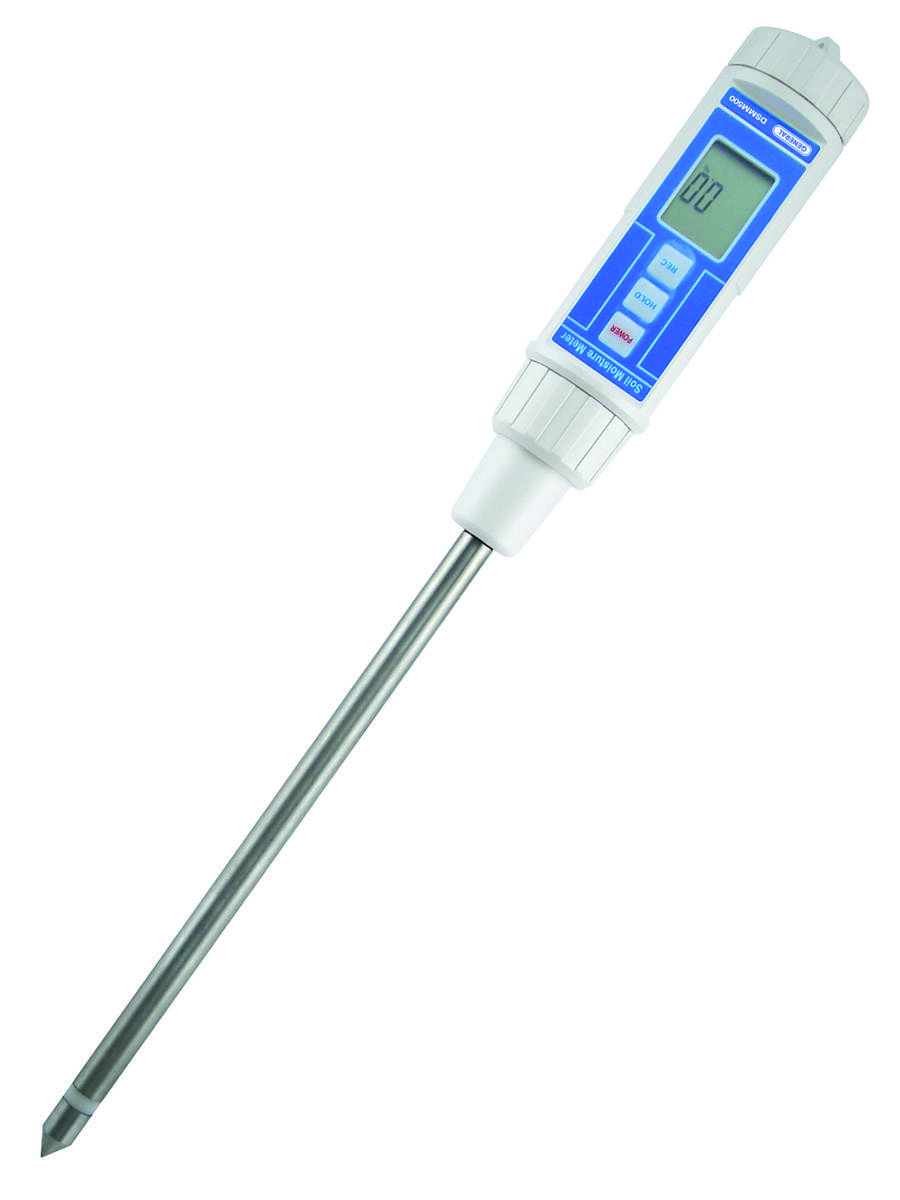The Ultimate Overview to Moisture Meters: A Comprehensive Introduction and Exactly How They Can Save You Money
In the world of structure maintenance, construction, and various industries, the value of precisely determining moisture degrees can not be overemphasized. Wetness meters function as essential devices in identifying and checking moisture material in materials, assisting in stopping expensive damages and making certain the high quality of products. Comprehending the subtleties of different kinds of wetness meters, their applications, and the potential cost-saving advantages they use can be a game-changer for experts and businesses alike. Uncovering exactly how these tools can not only streamline procedures but additionally contribute to economic savings is a trip worth starting.
Sorts Of Moisture Meters
One common kind is the pin-type dampness meter, which determines the electrical resistance between 2 pins put into a material. Pinless wetness meters, on the other hand, use electro-magnetic sensing unit plates to check a bigger location without triggering damage to the product's surface area.
In addition, there are also specialized dampness meters made for particular products like hay, dirt, or grain. These meters give accurate moisture readings customized to the one-of-a-kind homes of the product being evaluated. Infrared moisture meters measure the thermal properties of a material to identify its moisture material non-invasively, making them valuable for applications where pin or pinless meters may not appropriate. Comprehending the different kinds of dampness meters readily available can assist industries choose the most appropriate device for their certain wetness measurement needs.

Benefits of Making Use Of Moisture Meters

Additionally, making use of dampness meters can lead to increased power effectiveness. In farming settings, dampness meters play an important function in enhancing plant yields by allowing farmers to check dirt moisture levels and make informed watering choices.
How to Choose the Right Moisture Meter
Choosing the appropriate wetness meter entails considering vital aspects such as product compatibility, measurement range, and calibration accuracy. When selecting a moisture meter, it's vital to make sure that the meter appropriates for the specific product you will be testing. Various products have varying electrical properties that can affect dampness readings, so choosing a meter made for your product is vital for exact results. In addition, consider the dimension range of the dampness meter. Ensure that the meter can discover moisture degrees within the range required for your applications. Calibration accuracy is another important aspect to bear in mind (Moisture Meter). Go with a moisture meter with reputable calibration to make sure precise and regular readings. Some meters may need regular calibration modifications, so comprehending the calibration procedure is essential. By very carefully evaluating these factors, you can choose a dampness meter that meets your requirements and gives exact dampness dimensions for your projects.
Appropriate Strategies for Moisture Meter Use
To guarantee exact dampness analyses and maximize the effectiveness of a wetness meter, utilizing appropriate strategies is essential. When utilizing a pin-type dampness meter, put the pins or probes right into the product being tested up until they make full contact. Make sure the pins are vertical to the surface area to obtain one of the most specific analysis. For pinless dampness meters, hold the tool level versus the product and move it slowly to cover the entire area for an average reading. It's essential to calibrate the wetness meter according to the material being evaluated to enhance accuracy. Take multiple analyses throughout the surface area and ordinary them out for a much more trustworthy outcome. In addition, make sure that the material being evaluated is accustomed to the atmosphere to stop skewed go to my blog readings. Routine maintenance of the moisture meter, such as cleaning the pins or sensing unit, is likewise crucial to guarantee exact and constant readings. By following these correct strategies, individuals can depend on their dampness meter to give credible moisture degrees, assisting in click here for info avoiding pricey damages or ensuring high quality in different applications.

Expense Cost Savings Through Moisture Meter Applications
How can the critical application of moisture meters lead to considerable expense financial savings across various markets? In the agriculture market, wetness meters help in establishing the optimal time for harvesting crops, avoiding over-drying or excess wetness that can affect the last item's high quality.

Furthermore, in the food processing market, wetness meters are necessary for monitoring product high quality and making sure compliance with security guidelines. By precisely determining wetness web content in food items, suppliers can prevent spoilage, maintain freshness, and decrease waste, causing substantial price savings. Overall, the calculated application of wetness meters is a useful financial investment that can lead to considerable price reductions and improved performance throughout different sectors.
Conclusion
In conclusion, dampness meters are useful tools for identifying and gauging dampness degrees in different materials. By utilizing the best moisture meter and adhering to proper techniques, individuals can properly protect against costly damages triggered by excess wetness. Buying a top quality moisture meter can bring about considerable price financial savings in the future by recognizing prospective concerns early and enabling punctual remediation. Eventually, moisture Your Domain Name meters are crucial instruments for keeping the integrity and long life of materials and structures.
Moisture meters serve as indispensable tools in finding and keeping track of moisture material in products, assisting in preventing costly damages and guaranteeing the top quality of items. Infrared dampness meters measure the thermal properties of a material to determine its wetness material non-invasively, making them beneficial for applications where pin or pinless meters might not be appropriate.Dampness meters supply invaluable advantages in accurately assessing and keeping track of wetness levels in diverse materials and environments. In agricultural settings, moisture meters play an essential role in optimizing crop yields by enabling farmers to keep track of soil moisture degrees and make educated watering choices.In final thought, dampness meters are valuable devices for discovering and gauging dampness degrees in numerous products.